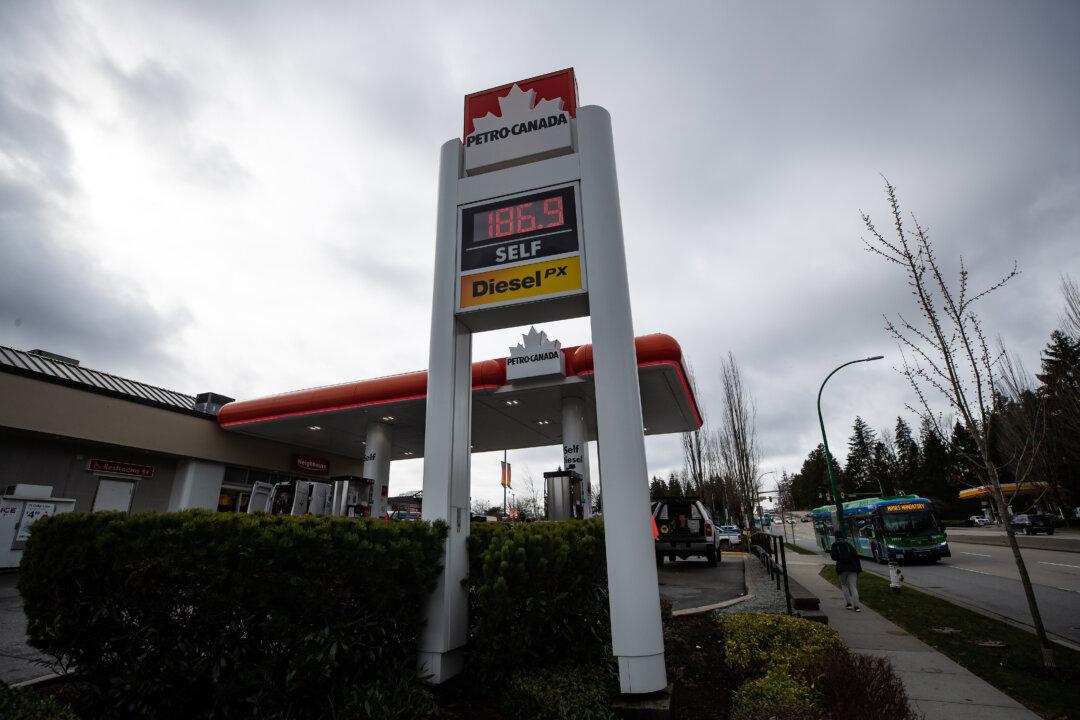EDMONTON—Alberta drivers will see a continued freeze on provincial fuel taxes, saving motorists 13 cents per litre with every fill of gas or diesel until the end of the year, following a vote in the legislature.
“The rising cost of living is a top concern for Albertans and Alberta’s government remains committed to keeping everyday life more affordable by saving Albertans 13 cents per litre every time they fill up for the remainder of the year. This will help an Alberta family save between $6 and $18 every time they fill up their vehicle,” the Alberta government said in a news release on June 19.





